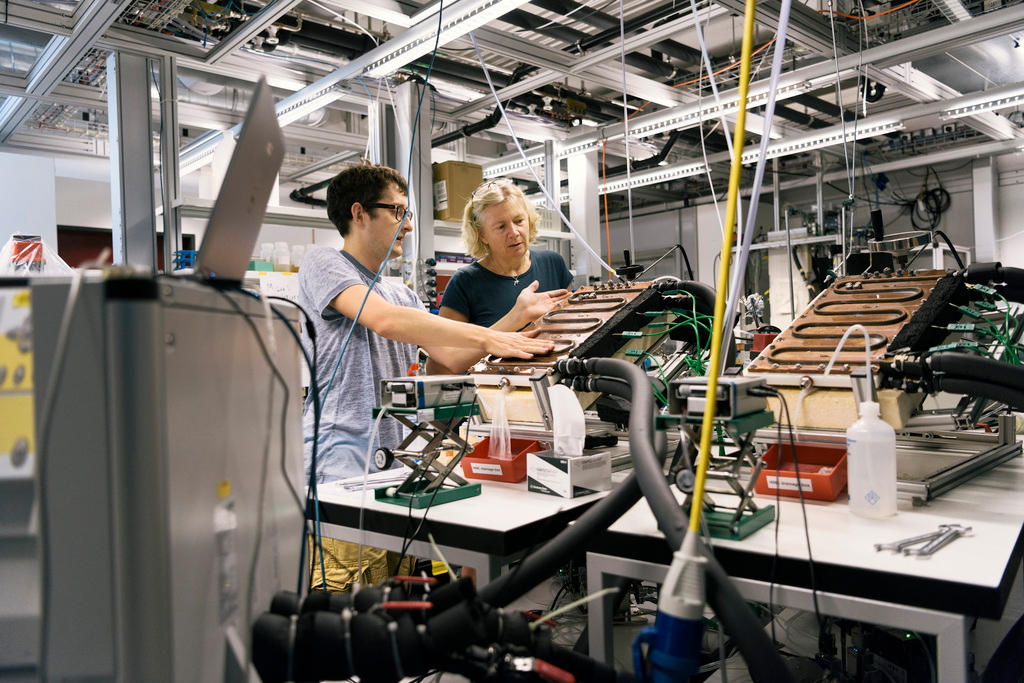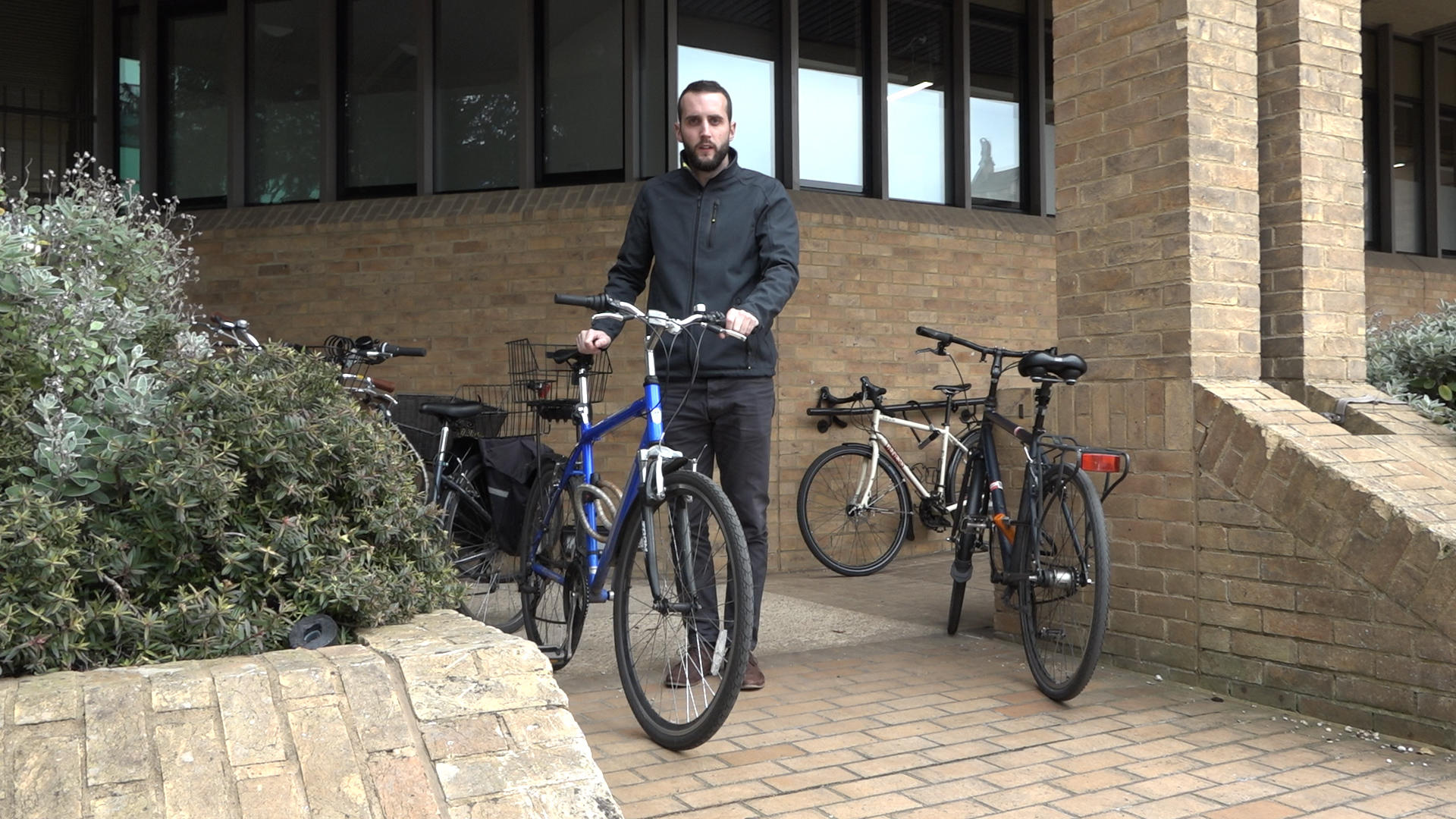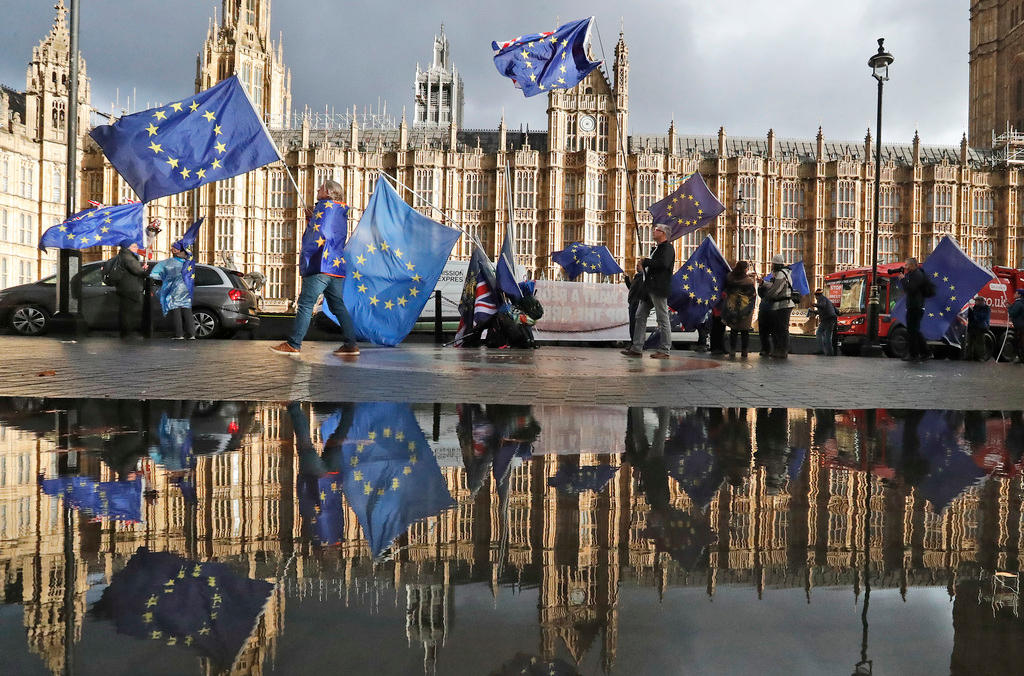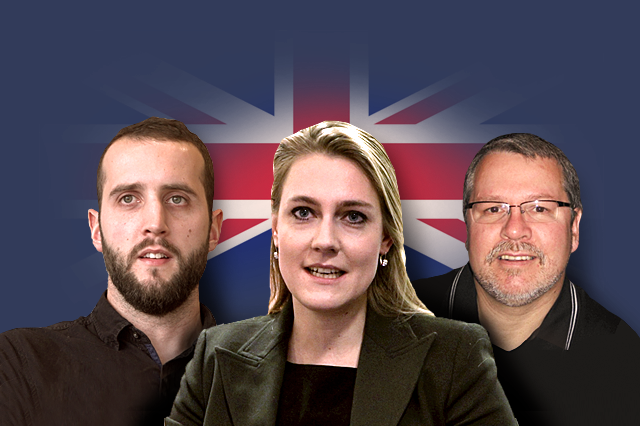Brexit’s ‘toxic uncertainty’ impacts Swiss and UK scientists

Scientific progress in Switzerland, and for Swiss citizens, could be at risk if research and innovation are caught up in the politics of Brexit, say those affected in the Swiss and British research communities.
“There’s this uncertainty that is very toxic,” says Vincent Croset, a Swiss post-doctoral scientist exploring issues of memory at the University of Oxford’s Centre for Neural Circuits and Behaviour. “We won’t be able to do research in the conditions that we do at the moment.”
Croset is one of about 34,500 Swiss citizens living and working in the UKExternal link. Funding for his project is provided by a European Research Council grant through Horizon 2020External link, the European Union’s framework programme to fund research and innovation. The UK may lose access to Horizon 2020 funds and its successor program, Horizon Europe, if it leaves the European Union without a deal.
While Croset is hopeful that the UK would make up for any funding lost after Brexit and the British government has promised as muchExternal link, he worries that Brexit’s potential impact on the British economy may still damage the research community. If the economy takes a hit, he argues, research funding will be the first thing to be cut back.

More
Academics may shun the UK
Access to researchers
Another concern is mobility.
David Britain is the director of the English department at the University of Bern. One of 41,000 British citizens living in Switzerland, his work involves research into linguistics. One of his doctoral assistants is British and he believes it may be more difficult for someone like her to come to Switzerland in a few years if Switzerland considers the UK a third state, like the United States, when it comes to immigration.
“Rules for third states are much more complex than employing a Brit at the moment,” says Britain, arguing that a change in status for British citizens will make it much more difficult for Swiss institutions to take on researchers from the UK.
And if the UK is no longer in Erasmus+, an EU student exchange programme which Switzerland is also involved in, Swiss students may find that access to one of the most popular destinations becomes a lot more expensive, he says.
“It’s frustrating because if the Brexit is hard [without a deal with the EU], there will be all these questions on the 30th of March and nobody will know the answer to them.”
Barbara Tschirren, a Swiss researcher working at Exeter University in Cornwall, is a senior lecturer in evolutionary ecology. She sees Brexit’s potential impact on mobility as a detriment for scientific advancement itself. In her own career, she has had postdoctoral positions in Australia and Sweden, with several research stays in the Netherlands.
“Every culture has a different way of seeing and approaching problems,” Tschirren says. “You learn so much. It’s important as a researcher to be exposed to different research environments.”
Yet the UK’s departure from Europe could mean Tschirren’s program loses its post-doctoral researchers. The Marie Skłodowska-Curie research fellowship, which Tschirren calls one of the most important funding schemes for those seeking to do research after completing a PhD, may no longer be available to UK institutions. Currently, three students, one each from Finland, France and Spain, are applying for this fellowship to join her team.
That this may be the last round of international fellows through the Marie Curie fellowship “is maybe one of the biggest worries,” Tschirren says.
Perception of research partners
Switzerland serves as an example of how relations with the EU can affect scientific research, having lost its full associated country status in the Horizon 2020 research funding programme following a 2014 vote to curb EU immigration. The country was able to attain partial association and later regained its full association after the political follow-up to the immigration vote was decided in 2016. But Philipp Langer, who heads the EU framework programmes at the State Secretariat for Education, Research and Innovation (SERI), says there were long-term effects.
Swiss scientists, having been cut off from parts of Horizon 2020, were seen as less-than-ideal research partners. There was lingering uncertainty concerning the conditions of their participation in the programme, Langer says.
During the 2007-2013 funding period, Switzerland received 4.3% of the total scientific research funds given by Horizon2020. After the 2014 immigration vote, Swiss researcher participation fell and contributions dropped to 2.2% of total funds.
As of the last reporting in March 2018, Switzerland, with its status restored, received 3.5% of all funding contributions.
Fallout for Switzerland
As Brexit is unfolding, Switzerland is lobbying for full associated country status for the next EU funding programme, called Horizon Europe. The funding is contingent on Switzerland reaching a long-sought framework agreement with the EU. Detlef Günther, the vice president of research and corporate relations at the Swiss Federal Institute of Technology ETH Zurich, says Brexit could also impact Switzerland’s place in the programme.
“Brexit takes so much time and effort that we fear the discussion about Switzerland and full association will go a little bit under the radar.”
He also points out that a significant number of leading European research institutions are in Great Britain and Switzerland, which raises the question of whether the EU’s research and innovation programmes could be considered excellent without participation from the two countries.
“It’s not just about the money,” he says. “Science is a global enterprise.”

In compliance with the JTI standards
More: SWI swissinfo.ch certified by the Journalism Trust Initiative




You can find an overview of ongoing debates with our journalists here. Please join us!
If you want to start a conversation about a topic raised in this article or want to report factual errors, email us at english@swissinfo.ch.